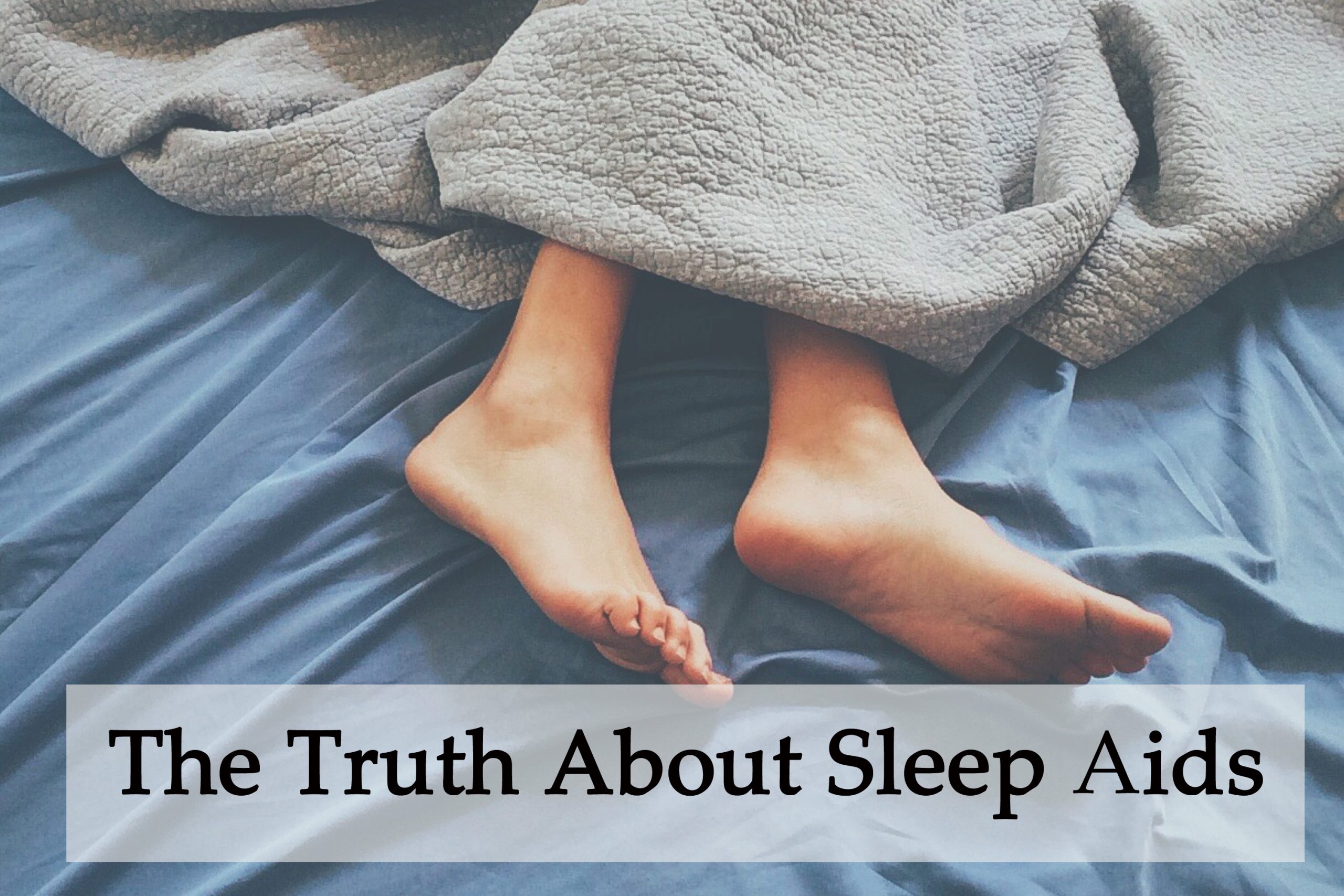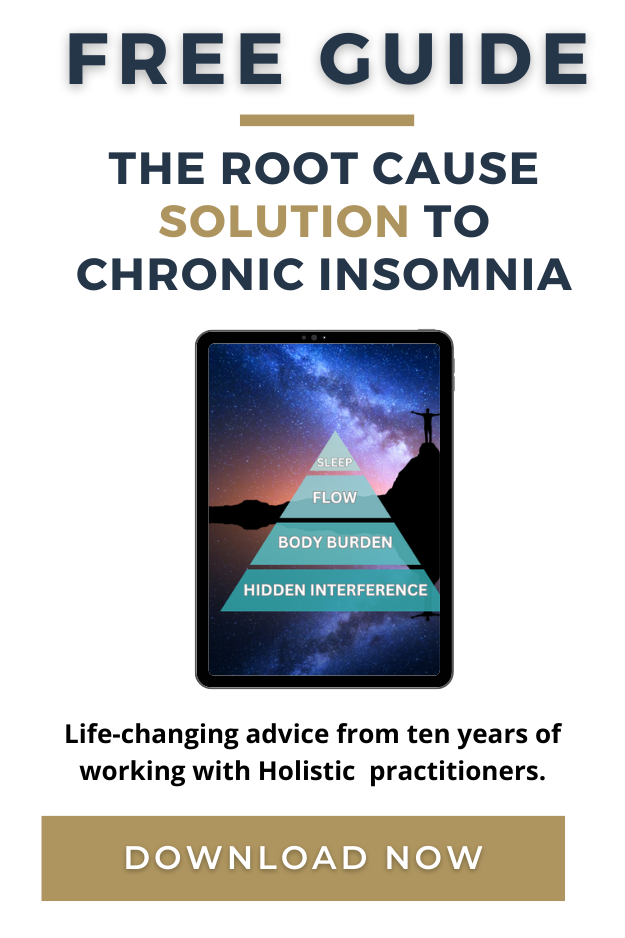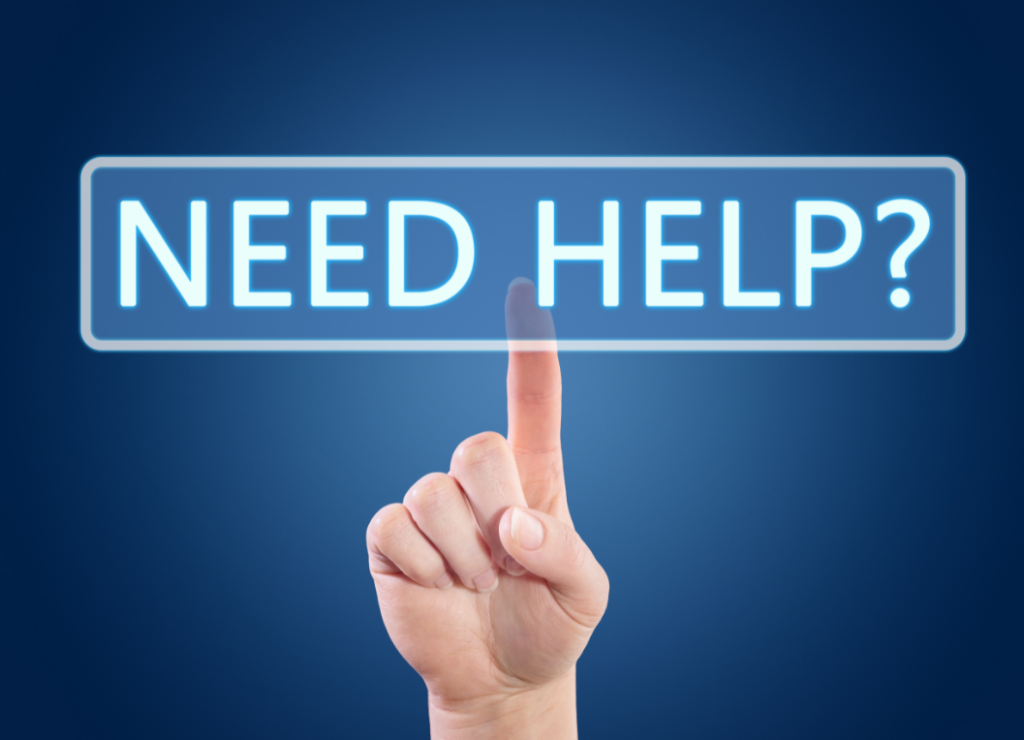Are you one of the people who has tried every calming supplement and sleep aid there is but it had virtually no effect on your insomnia? These are often sold as “Here’s something that will help calm down your overreactive brain: Valerian, Skull Cap, L-Theanine, GABA, Magnessium, 5HTP, Glycine, Passionflower, Hops, Chamomile and many others. If you answered yes then your root cause hides elsewhere and this article will help you steer in the right direction.
The reason I often refer to Eastern medicine is because it believes that the whole is greater than the sum of all parts. If the body is not balanced, illnesses and disease can occur. In order to appreciate this better and improve my sleep I had to self-educate on a ton of things. Here are some key concepts that will help you understand why you might be experiencing lots of frustration with common sleep aids.
Homeostasis – The Great Balancing Act
Think of your body as a 24 hour balancing act. You are programmed to survive in an inner changing internal and external environment. For example, you eating and enjoying a movie but what is your body doing that very moment? It is performing a complex set of procedures to digest, regulate temperature, blood pressure, balance out PH and sugars, regenerate muscles, detox and hundreds of other functions all the same time! Meanwhile, oblivious to all the multiple processes taking place inside you are relaxing on your sofa.
All living organisms, from plants to hamsters to people, must regulate their internal environment to process energy in order to survive. This is what is called Homeostasis – the ability to maintain a balance. One of the components so vital for good sleep is the balance in neurotransmitters and hormones.
Understanding Neurotransmitters
One of the most helpful things to learn for any insomniac is the basics about neurotransmitters. They are messengers in your brain and nervous system that carry messages between nerve cells in your body and influence functions like sleep, mood, digestion, even sex. Most sleep aids address imbalances in neurotransmitters but to know how they work it is helpful to understand the basics:
There are excitatory neurotransmitters that excite the neuron and inhibitory types that inhibit the neuron making it less ‘active’. Neurotransmitter activity can be influenced by drugs, disease, and interaction with other chemical messengers.
Excitatory neurotransmitters:
Acetylcholine – muscle stimulation, including those of the gastrointestinal system and the autonomic nervous system.
Epinephrine – aka adrenaline, produced by the adrenal glands and used by your body for dangerous situations by increasing your heart rate, blood pressure, and glucose production.
Glutamate – involved in cognitive functions such as learning and memory in the brain, emotions, sensory information, and motor coordination. Glutamate is often implicated in cases on insomnia and mental illness. That is because we require the right concentrations of glutamate to be released in the right places for only small amounts of time. Anything less than this results in poor communication and anything more can be neurotoxic and can damage neurons.
Histamine – primarily involved in inflammatory responses, vasodilation, and the regulation of your immune response to foreign bodies such as allergens. Histamine too is often implicated in poor sleep patterns, especially when it is elevated due to inflammation or poor digestion lacking in a so called DAO enzyme.
Dopamine – the feel good molecule, which has effects that are both excitatory and inhibitory. It is associated with reward mechanisms in the brain and can contribute to motivation. It can also be temporarily elevated by drugs such as cocaine, heroin, and alcohol which lead to intoxication and stimulation.
Inhibitory neurotransmitters:
GABA (Gamma-aminobutyric acid) acts as a brake to the excitatory neurotransmitters. GABA has wide distribution in the brain and has a major role in reducing neuronal excitability throughout the nervous system. This is what all of these ‘calming” supplements listed above target at.
Serotonin – is involved in emotion and mood, balancing excessive excitatory neurotransmitter effects in your brain. Serotonin also regulates processes, such as sleep cycle, carbohydrate cravings, food digestion, and pain control. These are target by supplements like Melatonin, 5-HTP, L-Tryptohan, SAM-e and vitamins/minerals like B6, B12, Vitamin C, Vitamin D, Zinc.
When Sleep Aids Do Not Work
Here’s my main point: some people suffer from insomnia because of imbalance in their neurotransmitters. These are the people that can benefit from all those supplements addressing the neurotransmitter imbalances. However, many chronic insomniacs suffer from many other imbalances that have nothing to do with the neurotransmitters.
 Supplementing with GABA supplements do nothing more but calm your nerves while you’re laying there awake wondering what the hell is going on. These brain calming supplements are nothing more that pushing a beach ball under the water. The stronger underlying causes will eventually make it pop up on the surface.
Supplementing with GABA supplements do nothing more but calm your nerves while you’re laying there awake wondering what the hell is going on. These brain calming supplements are nothing more that pushing a beach ball under the water. The stronger underlying causes will eventually make it pop up on the surface.
The latter group requires a whole different approach and it can benefit much more by balancing one’s insulin levels, hormones, reducing inflammation, addressing detox and methylation pathways, stealthy viral or bacterial infections and many other conditions.
For example, fluctuations of thyroid, testosterone, cortisol, progesterone, and growth hormone can all cause sleep issues. In women, sleep problems are often caused by either too much estrogen or too little progesterone. Estrogen stimulates the nervous system whereas progesterone calms it down, therefore, estrogen and progesterone must be balanced for proper sleep to occur. If these issues are not addressed in time, they can start a viscous cycle where insomnia can cause further hormonal imbalances, including conditions like adrenal fatigue, hypo-thryoidism, etc.
No More Chasing the Symptoms

Key thing I had to realize over the years that my body is an incredibly complex and amazing machine. Many of us have no clue how to fix our sleep because we only try address the issue with supplements in a fashion of plugging holes in a sinking ship. Meaning – we only try to suppress the symptoms because that is all our doctors and pharmacists are trained to do! Prescription meds makes the situation even worse because they only mask the problem.
Sometimes we get lucky and a small deficiency can be addressed with a supplement. This is where all these rave reviews come from on the shopping platforms but for most of us we need a complete evaluation of our entire body and life style. This includes a genetic test, vitamin and mineral analysis, viral and bacterial infections, blood sugar, heavy metals test, organ function and a few more depending the nature of your symptoms.
In summary, some sleep aids may enhance one’s sleep quality but they almost never resolve insomnia. The latter must be addressed by lifestyle, routine, diet, balancing hormones, supporting the organs, detox and anything else that can address the root cause of the imbalance. Be smart – it is time to become your own doctor and to get well.





The part about female hormones is very accurate. I developed insomnia after I went off hormonal contraceptive pill (estrogen+progesteron) which I took for 17 years and once my natural hormones kicked in, I believe I started having what’s called estrogen dominance and it caused my insomnia and now I am thinking of going back to combined contraceptive pills just to keep my hormone levels steady even though nowadays they are considered more harmful than helpful. Does it make sense?
Indre, have you checked your recent estrogen levels? There’s research that claims you can reduce it with supplements like DIM, Calcium D-Glucarate and many others. Here, study the ingredients in this formula and see if it would make sense to try anything here: https://www.iherb.com/pr/Natural-Factors-WomenSense-EstroSense-Hormone-Balancing-60-Vegetarian-Capsules/2608. Keep in touch, OK?
I just had progesterone levels checked and they were high but within normal range, now waiting for estrogen levels checked next week, will see. This is very useful, will check if results come up with high levels of it. Thanks
Oki, keep in touch 😉
I sent you an email a moment ago, but thought I’d leave a comment. I was on a combination of depression medications for five years. The last three I was on Abilify, Lamictal and Zoloft. I weaned off of them two years ago exactly. A week after taking the last pill, I developed insomnia. It’s been a nightmare.
I’ve seen four sleep doctors, tried seven medications, sleep restriction therapy, hypnosis and countless supplements as you mentioned.
I don’t know if the insomnia is from the damage caused by the medications, the depression. I just don’t know. Any thoughts?
Sorry Gary, I’ve been kind of detached from my blog because of work recently. Very hard to tell as to the direct cause but I would say this happens when the brain and body is retrained to use other pathways, in your case meds reduced body’s natural capability to transition into sleep. What supplements have you tried, for how long and what was your response?